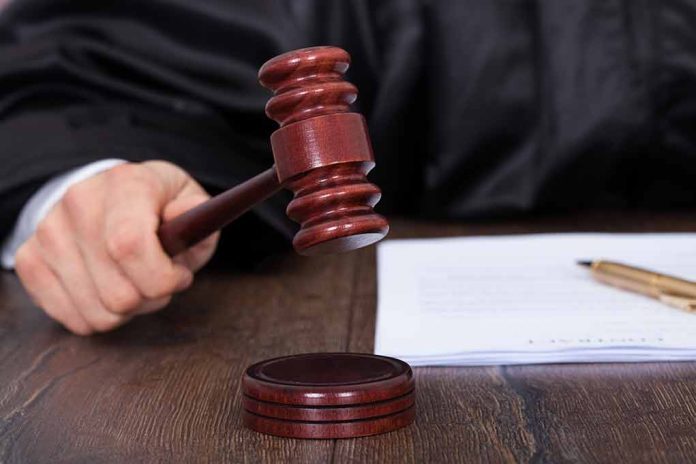
The Trump administration faces significant legal scrutiny over its deportation policy as allegations of contempt surface in a Washington, D.C. courtroom.
Key Takeaways
- A federal judge found probable cause to hold the Trump administration in criminal contempt over deportations under the Alien Enemies Act.
- Judge James Boasberg issued a temporary restraining order against deportations, but the administration continued its actions.
- The administration plans to appeal the decision, citing national security reasons.
- The Supreme Court ruled 5-4 in favor of the administration but did not address the constitutionality of the deportations.
- The administration faces a deadline to address the contempt finding or risk prosecution.
Judge Finds Probable Cause for Contempt
U.S. District Judge James Boasberg identified probable cause to hold the Trump administration in contempt for deporting individuals despite a court order. The deportations in question involved alleged Venezuelan gang members. Boasberg’s order on March 15 barred use of the Alien Enemies Act for expedited deportations. However, flights continued, violating his directive.
The administration deported several individuals to El Salvador’s harsh prison conditions after the restraining order. Judge Boasberg emphasized the government’s defiance of judicial orders. “The government’s actions demonstrate a willful disregard for its Order, sufficient for the Court to conclude that probable cause exists to find the Government in criminal contempt,” he noted.
A Complex Legal Battle
The Trump administration plans to challenge Judge Boasberg’s finding, citing national security threats. White House Communications Director Steven Cheung emphasized the President’s commitment to keeping dangerous entities out of America. “The President is 100% committed to ensuring that terrorists and criminal illegal migrants are no longer a threat to Americans and their communities across the country,” Cheung stated.
The saga took a turn with the Supreme Court’s narrow 5-4 decision. They allowed the use of the Alien Enemies Act for selective deportations but urged due process for Venezuelans. However, the ruling did not assess the constitutional implications of Boasberg’s order.
Judge Boasberg defies SCOTUS, plans to hold Trump in criminal contempt. His mission is to hand Democrats grounds for impeachment and a midterm election platform to impeach Trump. No sitting POTUS has ever been charged with criminal contempt. We are witnessing a live coup attempt! pic.twitter.com/o3T3skkRzw
— Sling Blade Karl 🇺🇸 (@SlingbladeKarl) April 16, 2025
Potential for Prosecution Looms
Judge Boasberg mandated that the Trump administration devise a plan to reverse the contempt finding. If non-compliance persists, severe actions like depositions or witness testimony may unfold. The case revolves around mass deportation under the Alien Enemies Act and calls for stringent adherence to judicial and constitutional edicts.
Attorneys from ACLU and Democracy Forward underscore the need to focus on reversing unjust deportations. The April 23 deadline looms over the administration, with potential consequences if it falters. The discourse continues as the judiciary mandates and government policies intersect.
Sources:
- Judge Finds Ground to Hold Trump Administration in Criminal Contempt Over Deportation Flights
- Judge finds probable cause to hold Trump administration in criminal contempt in deportation flights case
- Judge: ‘Probable cause’ to hold U.S. in contempt over Alien Enemies Act deportations







